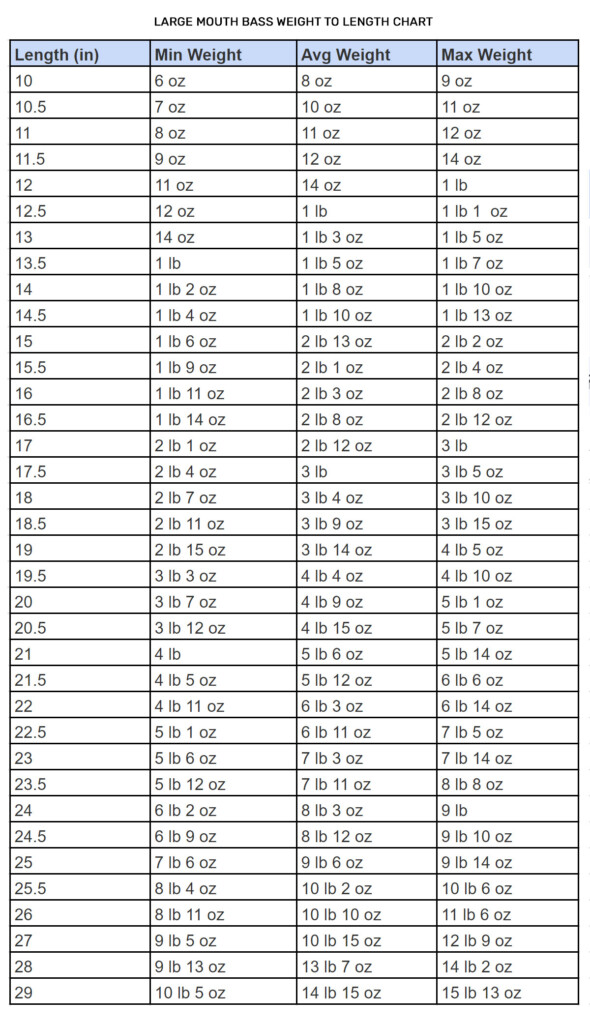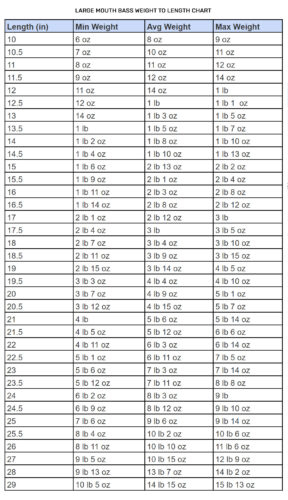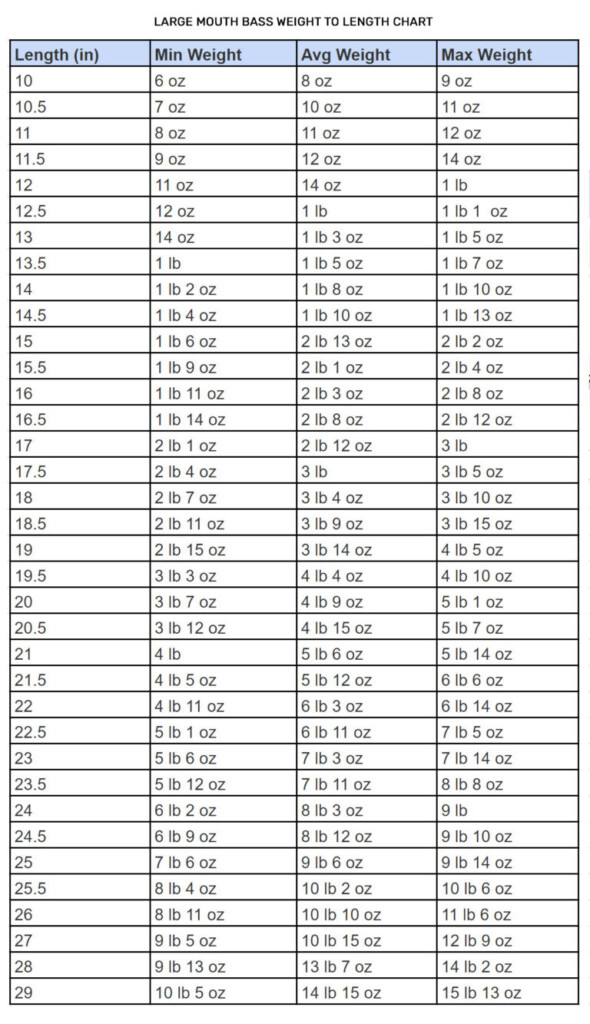When it comes to fishing for largemouth bass, knowing the weight of your catch can be just as exciting as reeling it in. Understanding how to estimate the weight of a largemouth bass based on its length can help you track your progress as an angler and make for some friendly competition among fishing buddies. To make this process easier, many anglers rely on length to weight conversion charts that provide a rough estimate of a largemouth bass’s weight based on its length.
Recommended reading: Fishing Ban Imposed on Zambia's Lake Tanganyika Due to Overfishing
These conversion charts are not exact science, as the weight of a largemouth bass can vary based on factors such as its age, sex, and overall health. However, they can give you a good starting point for estimating the weight of your catch. Keep in mind that these charts are based on averages and should be used as a guideline rather than a definitive measurement.
Largemouth Bass Length To Weight Conversion Chart
Using a Length to Weight Conversion Chart
Most length to weight conversion charts for largemouth bass will provide a range of weights for each length measurement. For example, a chart may show that a 15-inch largemouth bass could weigh anywhere from 1 to 2 pounds. To use these charts effectively, you’ll need to measure the length of your catch from the tip of its nose to the end of its tail, then refer to the chart to estimate its weight.
It’s important to note that largemouth bass can vary significantly in weight even at the same length due to factors such as body shape and feeding habits. Additionally, largemouth bass tend to be heavier during certain times of the year when they are feeding more heavily in preparation for spawning or colder weather. Keep these factors in mind when using a length to weight conversion chart to estimate the weight of your catch.
Conclusion
Estimating the weight of a largemouth bass based on its length can add an extra element of excitement to your fishing adventures. While length to weight conversion charts can be a helpful tool, it’s important to remember that they are just a rough estimate and not a definitive measurement. Enjoy the process of catching and releasing these prized game fish, and use length to weight conversion charts as a fun way to track your progress as an angler.
So next time you reel in a largemouth bass, take a moment to measure its length and use a conversion chart to estimate its weight. You might be surprised at just how big your catch really is!
Download Largemouth Bass Length To Weight Conversion Chart
Largemeouth Bass Length To Weight Chart
Largemeouth Bass Length To Weight Chart


